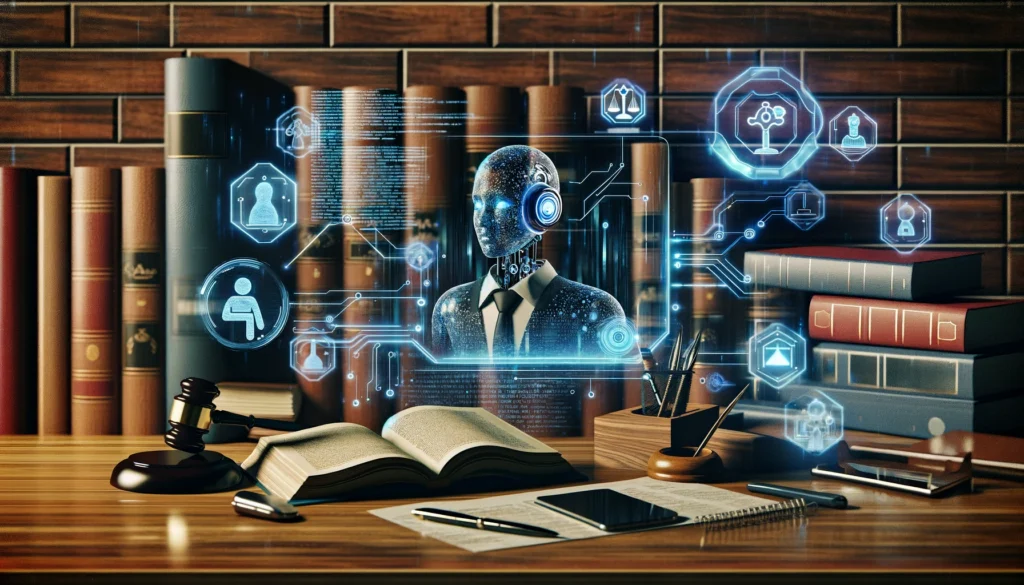
Unlocking the Potential of AI in Estate Planning
The world of estate planning often involves painstaking and complex workflows. Traditionally, these challenges stem from the sheer volume of data and documentation required to effectively plan and execute estates. Errors or omissions can lead to significant legal issues, calling for meticulous attention to detail.
Enter ChatGPT, an advanced AI tool designed to provide robust assistance across various tasks. This technology holds the promise to transform estate planning by alleviating many of the labor-intensive aspects of the practice. Paralegals, in particular, can benefit immensely by leveraging AI to enhance productivity, reduce errors, and dedicate more time to higher-value tasks.
Smart Task Automation: Reducing Redundancies
Given the repetitive nature of many tasks in estate planning, automating these processes through AI is a game-changer. ChatGPT can be utilized to automate a wide range of routine responsibilities.
One of the most time-consuming tasks is document drafting. Using ChatGPT, paralegals can streamline the creation of standard clauses and other frequently used legal text. For instance, prompts such as “Draft a standard trust clause including relevant state stipulations” can generate a quality draft within seconds.
Additionally, correspondence management can be automated. ChatGPT can generate emails, letters, and other communication seamlessly. By using tailored prompts like “Write an email to a client confirming the details of their estate plan review meeting,” paralegals can ensure that correspondence is both accurate and timely.
This automation not only reduces redundancies but also frees up valuable time, allowing paralegals to concentrate on more complex legal challenges.
Dynamic Data Management: From Chaos to Clarity
The next logical step from automating tasks is the effective management of client data. Proper structuring and handling of this data can reduce the chaos associated with estate management.
ChatGPT can assist in structuring client data effectively. Prompts like “Summarize the client’s assets and liabilities from the provided data set” can collate and clarify information quickly. Moreover, data extraction from complex legal documents becomes straightforward. For example, a prompt as simple as “Extract the key financial figures from this balance sheet” can save immense time.
Integration with existing estate planning software further enhances these capabilities. Proper API connections allow ChatGPT to work in tandem with other tools, ensuring cohesive and comprehensive data management.
Effortless Research and Legal Insights
Research is a cornerstone of effective estate planning. The ability to quickly and accurately gather information can significantly influence case outcomes.
ChatGPT offers unparalleled efficiencies in legal research. Paralegals can prompt the AI with commands such as “Summarize recent legislative changes affecting estate taxes in New York,” which can yield well-researched summaries in no time. Further, nuanced prompts like “Extract key points from the attached 50-page legal brief on will contests” can also be deployed for deeper informative insights.
This capability ensures that paralegals are always equipped with the latest data, fostering informed decision-making and improved client service.
Client Communication: Enhancing Engagement and Accuracy
Another key area where ChatGPT excels is client communication, which is indispensable for maintaining strong client relationships.
Crafting personalized and accurate client communications is made simpler with AI. Custom prompts like “Draft a personalized update email to client regarding changes in their estate plan” ensure that all communication remains relevant and specific. Additionally, ChatGPT can maintain logs of client interactions and automate follow-ups, ensuring no details are overlooked.
Incorporating AI in these areas ensures compliance with legal communication standards while enhancing overall client satisfaction.
Risk Mitigation and Quality Assurance
Moving beyond mundane tasks, ChatGPT can significantly contribute to risk mitigation and quality assurance in estate planning.
Paralegals can use AI to spot potential issues in documents, utilizing prompts such as “Check for inconsistencies in these legal clauses” to identify and rectify errors before formal submission. Confirmation processes can be automated, ensuring the highest levels of accuracy. For example, a prompt like “Double-check the beneficiary details in this trust document for accuracy” can save time and reduce legal risks.
Employing AI for these checks enhances the overall quality of estate plans, providing peace of mind for legal professionals and their clients alike.
Synthesizing Estate Plans: Bringing It All Together
Finally, the ultimate goal of any estate planning practice is to create comprehensive and actionable estate plans. ChatGPT facilitates the synthesis of these plans by combining various components into cohesive documents.
Utilizing templates and prompts, such as “Compile a final estate plan document using wills, trusts, and asset lists,” can streamline the process significantly. Techniques for integrating these components ensure that final documents are both thorough and easily navigable. Moreover, ChatGPT can assist in the review and approval process, generating checklists and reminders for any remaining tasks.
This synthesis not only enhances efficiency but also ensures the creation of higher-quality estate plans, bringing added value to clients and legal practitioners alike.
In summary, leveraging AI in estate planning has the potential to transform traditional methods and enhance the efficiency and accuracy with which estate plans are managed. Integrating ChatGPT into various facets of estate planning—from task automation to client communication—ensures a smoother, more reliable practice, ultimately benefiting both paralegals and clients.


